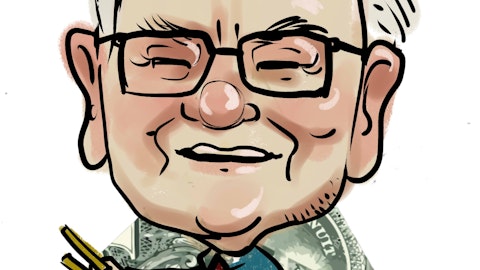
To begin, right now is an opportune environment for the downstream energy business. The oil and gas industry is broadly divided into upstream and downstream components. Upstream businesses include fracking, digging wells, and exploration for oil and gas. Downstream operations include selling refined oil and gas to industrial clients and individual consumers.
As a downstream business, according to the “Executive Overview” in its Form 10 (the form submitted during a spin-off), Phillips 66 focuses on three things: midstream operations (transportation and distribution of oil and gas), chemicals and plastics, and refining and distribution. The “upstream/downstream split” of ConocoPhillips and Phillips 66 was prefigured last year with the spin-off of Marathon Petroleum (NYSE: MPC) (the downstream business) from Marathon Oil (NYSE: MRO) (the upstream business). Phillips 66 and Marathon Petroleum stand beside Valero (NYSE: VLO) as the largest downstream oil and gas companies in the United States (that is, among ones that lack their own oil wells).
All three of these businesses rely heavily on favorable commodity prices for good margins. Luckily, natural gas prices are low, and domestic oil supply is increasing steeply. Brent crude is trading at slightly above $100 a barrel, while natural gas, though increasing in price, is still trading at a very manageable $2.80 (higher than the $2 bargain from earlier this year). With tempered pricing due to macroeconomic pressures, Phillips 66 will be able to buy its crude oil and natural gas at competitive prices.
Another consideration is the overall success of spin-offs. Spin-offs tend to unmask the hidden value of a company’s assets by allowing investors to value each business separately. In the case of Phillips 66 and ConocoPhillips, the “mother company” had at least four distinct businesses before the spin-off: (1) oil and gas exploration and production, (2) refining and retail, (3) chemicals, and (4) midstream transportation and distribution operations. ConocoPhillips retained the first business and spun-off the last three into Phillips 66.
Consider that, in late April right before the Phillips 66 spin-off, ConocoPhillips was trading in the low $70s per share. Now, Phillips 66 is valued around $36 (and climbing) while ConocoPhillips is valued at around $56. The math doesn’t lie: Shareholders of record in April saw their shares go from around $72 to $74 in two months outperforming the market–all because of restructuring and despite macroeconomic woes and declining oil prices.
The icing on the cake is that the Phillips 66 window of opportunity might not be over. Spin-offs tend to outperform the market even more substantially the second year post-spin-off–a kernel of wisdom that hedge fund manager Joel Greenblatt has exploited for years over at Gotham Capital (you can view his fund here). We are likely to see aggressive share repurchases in the coming year to make Phillips 66 even more attractive.
Additionally, Phillips 66 is agilely reassessing its capex structure. For instance, though the company expended about 54 percent of its capital expenditures on refining, refining only accounted for about 40 percent of its 2011 earnings. So you can figure that the remaining 60 percent of its business is operating on a better return-on-capital (ROC) multiple than its refining business. In fact, CPChem, a 50:50 joint-venture with Chevron (CVX), boasts the highest earnings of any chemical business nationally.
We are looking for the augmentation of these higher ROC businesses going forward for Phillips 66, in addition to more guidance about these newly “uncovered” businesses. A lesson of caution to my optimism: Marathon Petroleum, the company that was spun-off in much the same way as Phillips 66, had a turbulent ride over the past year, largely due to commodity fluctuations that impacted margins. That said, we might just be in calmer commodity waters at the moment, that is, if macroeconomic anxieties subside and demand remains stable.




